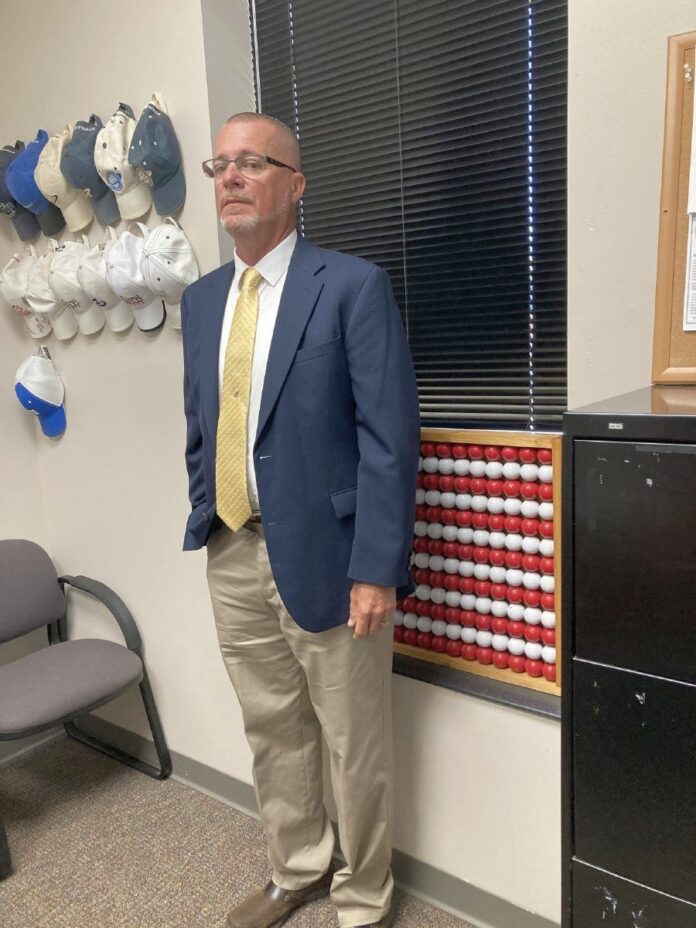
GREENFIELD — Hancock County’s work release program may be running again in the near future, as the county’s community corrections department moves forward with plans to end its long hiatus.
At a meeting of the county commissioners on Tuesday, Aug. 17, director Wade Kennedy said he thinks community corrections can open for business again within a month of the county shifting its operation to the new jail building.
That will likely take place in February or March of next year.
Kennedy said he hopes to be selective with the work-release program and choose inmates who are likely to succeed.
“Work-release will become a privilege and not just a right,” he said.
The work-release program shut down in May 2020 in response to the COVID-19 pandemic and has remained closed ever since. The participants at the time, about 80 inmates, were mostly sent to home detention, and 15 employees were laid off.
Kennedy said his department is in the process of hiring a new staff that will be training with new protocols in mind, not carrying over habits from the old days of the program. The county commissioners also approved the hire of Melissa Wilcher, a current employee at the county jail with over 10 years of experience, as the community corrections field officer.
Sheriff Brad Burkhart, who has in the past expressed concerns about how work release was run in the county, said he thinks this time will be different. The sheriff said that in the previous work-release program, the county had a persistent problem with people being granted work release who did not comply with its term and would bounce back and forth between jail and community corrections.
“I know the previous director, he was trying to alleviate some of the overcrowding at the jail, while we really appreciated him trying to do that, because we were extremely overcrowded at that particular point in time,” Burkhart said. “But by doing so, there was probably a clientele that was going over there that really shouldn’t have been there.”
In the past, Hancock County judges would typically sentence those convicted of a crime to jail time and add that there was no objection to their joining the work release program if it was felt that they did not pose a potential risk.
Burkhart said the issue of inmates going to work release without a specific order was arbitrary and created confusion about whose ultimate authority an inmate was under. In the future, he hopes to work with judges to sentence people to work-release specifically if they are suited for it.
Because of the construction of the new, larger jail, Hancock County will likely no longer have to worry about inmate overcrowding, Burkhart said.
“By having a bigger facility, we can be more selective on who actually goes (to work release),” he said.
The county government has talked in the past about shifting the operations of community corrections to the current jail building once the new one is complete, and repurposing the community corrections building — which is next door to the jail on East Main Street — for some other use, perhaps as a space for the prosecutor’s office.
Kennedy said he would ideally like to stay in the community corrections building because of renovations that make it better suited for his purpose.
“Either place they send me, we’re going to have plenty of space and I’m not going to have a problem, no matter where we go,” he said. “It would be really nice to stay in our own building.”
The current community corrections building has four dormitories; three can house 26 people, one can house 24. Kennedy said he’d like to use three of them to regularly house work-release participants, likely reserving one for women and two for men. The other could be kept open as a space where individual inmates could be separated from the dorms in the case of a COVID-19 case or other incident.
When participants are admitted to the work-release program, they can continue with their job if they had one before being convicted; if they don’t, they have two weeks to find one with the help of community corrections staff who work with several staffing agencies in town. Most jobs are in manufacturing, Kennedy said. Work-release participants can’t work in a facility that serves alcohol and must get their jobs approved by community corrections staff.
Work-release participants pay a fee out of their wages that partially funds the department. When the program shut down, those fees were set between $10 and $20 depending on the individual’s income.
